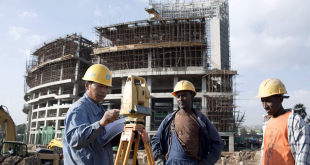Every day, Tanzanian businessman John Vedasto Rwehumbiza’s phone buzzes with messages from agricultural producers and logistics enterprises.
Having lived in China for nearly 20 years, 56-year-old Rwehumbiza is now running his own business in Guangzhou, capital of south China’s manufacturing heartland Guangdong Province, by importing African farm produce to factories in China.
Although the ongoing 127th China Import and Export Fair, or Canton Fair, was moved online due to COVID-19, it is still one of the best opportunities for African businesspeople like Rwehumbiza to conduct purchase negotiations.
This year’s online fair, which started on June 15 and will run for 10 days, has attracted around 25,000 enterprises with 1.8 million products.
“Suppliers didn’t know the customers’ needs and customers didn’t know the capacity of the manufacturers. We all learned a lot during the visits,” he said.
Rwehumbiza’s bond with China can be traced back to 1987 when he left his hometown in Africa and studied at Shanghai Jiao Tong University. After graduation, he worked in Shanghai for three years before returning to Tanzania, where he became an exporter of construction materials.
He and his family moved to Guangzhou in 2007 as he wanted to explore the Chinese market. As one of the most important hub cities in China, Guangzhou has a long history of trading with countries and regions around the world and enjoys a reputation for having a favorable business environment.
In 2010, he eyed a new business opportunity and started importing African farm produce including cassava, peanuts, coffee and soybeans into China.
“We have a very good climate and fertile lands in Africa, while China has one of the biggest markets. The organic agricultural products produced in African countries are in large demand in China,” he said.
The Belt and Road Initiative, proposed by China in 2013, has brought more opportunities for China and African countries. The initiative is aimed at building trade and infrastructure networks connecting Asia with Europe, Africa and beyond.
“Chinese businessmen have shown interest in importing raw materials from, as well as investing in and creating employment in Africa. It helped eliminate poverty and created another big market,” said Rwehumbiza.
Communication technology, transportation and infrastructure are the three vital aspects that Rwehumbiza believes China has helped African countries to develop.
The vast leap taken by China’s economy and society in the past few decades made Rwehumbiza confident that the same achievement will be made by the African people.
“It is admirable that all the changes in China were brought about by the Chinese themselves. Now we Africans are supposed to learn from the Chinese to build Africa with our own hands,” he said.
Source: Xinhua
 Africa -China Review Africa -China Cooperation and Transformation
Africa -China Review Africa -China Cooperation and Transformation
